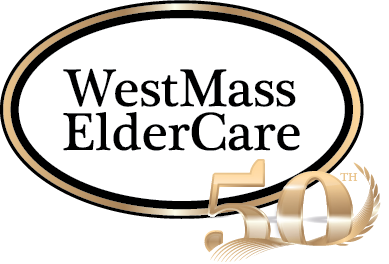
November is a month dedicated to honoring and recognizing the invaluable contributions of family caregivers. These unsung heroes play an important role in the lives of their loved ones, often providing selfless care and support to family members who are older adults, have a disability or chronic illness. Family caregivers are the backbone of our healthcare system, and their tireless dedication deserves our utmost respect and support. AARP estimates there are 780,000 caregivers in Massachusetts who give 730 million hours of unpaid family care, which equates to $15.1 billion in economic value.
The Significance of Family Caregiver’s Month
National Family Caregiver’s Month, observed annually in November, is a time to pay tribute to the silent champions who dedicate their time, energy, and love to care for their family members in need. It’s a moment to appreciate their sacrifices and the countless hours they spend ensuring the well-being of their loved ones. Caregiving can be an emotionally and physically demanding role, and this month serves as a reminder to acknowledge and support these caregivers.
The caregiving journey often involves many challenges, from managing medications and medical appointments to providing emotional support and maintaining a household. Many caregivers juggle their caregiving responsibilities with their own jobs and families, leading to stress and burnout. Family Caregiver’s Month aims to raise awareness about the challenges caregivers face and promote resources to ease their burden.
Tips for Family Caregivers
Seek Support: Caregiving can be isolating. Reach out to support groups, friends, and family members who can provide emotional support and respite when needed. Virtual support can also be a good option when caregivers can’t leave their loved ones unattended, or get out of the house for a time. Take Care of Yourself: Remember that you need care too. Prioritize your physical and mental health by maintaining regular medical check-ups and incorporating self-care into your routine.
Get Organized: Keep important documents, schedules, and medication lists well-organized. Utilize apps and tools to help manage caregiving responsibilities efficiently.
Respite Care: Don’t hesitate to take advantage of respite care services to give yourself a break. It’s crucial for your well-being and the quality of care you provide.
Financial Planning: Understand your financial options and consider consulting a financial advisor to plan for the financial aspects of caregiving.
Legal Matters: Address legal matters such as power of attorney, advance directives, and wills to ensure your loved one’s affairs are in order.
How WestMass ElderCare Can Help
WMEC offers several options to support family caregivers, including Adult Family Care, Personal Care Attendants, and Caregiver Support programs.
Adult Family Care
What It Is: Adult Family Care (AFC) provides a supportive living environment for individuals who require assistance with daily activities but prefer a home-based setting over institutional care. Caregivers, often family members, receive compensation for their caregiving efforts.
Benefits: Older adults and individuals with disabilities are able to remain in a home and family-like setting, rather than living in a nursing home or assisted living facility.
Differences: Unlike traditional nursing homes or assisted living facilities, AFC promotes a more personalized and homelier atmosphere. Caregivers in AFC offer one-on-one care tailored to their loved one’s needs.
Support for Caregivers: AFC offers financial compensation to family caregivers, alleviating some of the financial burdens associated with caregiving. Additionally, caregivers receive ongoing training and support from WMEC to enhance their caregiving skills.
Eligibility and Access: Adult Family Care is a MassHealth-funded program. Participants must have MassHealth (Medicaid) or pay privately. Caregivers are paid a monthly stipend for providing care, a private room, transportation, meals and support to their loved one or participant as a part of their family. Contact WMEC at 413-538-9020 or info@wmeldercare.org for more details.
Personal Care Attendants
What It Is: The Personal Care Assistance (PCA) program at WMEC offers caregivers options. You can become the PCA for your loved one, or you may receive support from a hired PCA.
Benefits: Personal Care Attendants (PCAs) provide essential support with activities of daily living (ADLs) for individuals who require assistance but wish to remain in their homes. PCAs offer companionship and help maintain independence. If you are caring for a relative or friend for whom you do not have legal responsibility, you can qualify to become a PCA for them.
Differences: PCAs offer personalized, in-home care that focuses on the specific needs of the individual. This one-on-one attention ensures that the care provided is tailored to the client’s preferences and requirements.
Support for Caregivers: PCAs can provide much-needed assistance with daily tasks, allowing family caregivers to have respite and reduce their caregiving responsibilities temporarily. Or you can get paid for caregiving by applying to be the PCA for your loved one, easing the financial strain often associated with caregiving.
Eligibility and Access: PCA is a MassHealth-funded program. Participants must have MassHealth (Medicaid) or pay privately. PCAs work for and are paid by the approved care recipient. Contact WMEC at 413-538-9020 or info@wmeldercare.org for more details.
Respite Care
What It Is: Respite care is designed to provide temporary relief to family caregivers. It allows caregivers to take a break, attend to personal matters, or simply recharge.
Benefits: Caregivers can take time off, knowing their loved one is in capable hands.
Differences: Respite care can take place in various settings, including in-home care, adult day centers, or short-term stays in assisted living facilities. It is not a long-term care solution but rather a temporary measure to prevent caregiver burnout.
Support for Caregivers: Respite care is a lifeline for caregivers, offering them much-needed rest and relaxation. It helps caregivers maintain their own health and well-being while continuing to provide care.
WMEC’s Caregiver Assistance, Respite and Enrichment (CARE) program offers paid respite options to caregivers. Caregivers can choose another family member or friend to provide care in their absence, or enlist the aid of a professional caregiver from one of our partner organizations.
Eligibility and Access: Caregivers who are not part of our AFC or PCA programs may benefit from the CARE program. This includes grandparents who are full time caregivers to their grandchildren, or older adults caring for an adult family member with a disability. There are no age or income limits on who can receive respite help under the CARE program. WMEC has a Caregiver Specialists who works with caregivers to address their needs and what types of supports would be helpful as they manage their lives and families, as well as caring for a loved one. We can also offer assistance with goods and services which may be placing financial strain on the caregiver, such as lift chairs, monitoring devices, incontinence supplies, nutritional shakes, ramps, and more. Contact WMEC at 413-538-9020 or info@wmeldercare.org for more details.
Conclusion
Family caregivers play a vital role in the well-being of their loved ones, and Family Caregiver’s Month serves as a reminder to honor their dedication and sacrifice. It’s crucial for caregivers to seek support, take care of themselves, and explore available resources to make their caregiving journey more manageable.
Among the valuable resources available to caregivers are paid caring options like Adult Foster Care, Respite Care, and Personal Care Attendants. These programs offer unique benefits and can provide much-needed relief to family caregivers. Understanding the differences, eligibility criteria, and access points for these programs can empower caregivers to make informed decisions that benefit both themselves and their loved ones.
As we celebrate Family Caregiver’s Month, let us remember to express our gratitude to family caregivers and continue to advocate for the support and resources they need to fulfill their essential role in our society. Caregivers are indeed the unsung heroes of our communities, and their unwavering commitment deserves our recognition and assistance.



